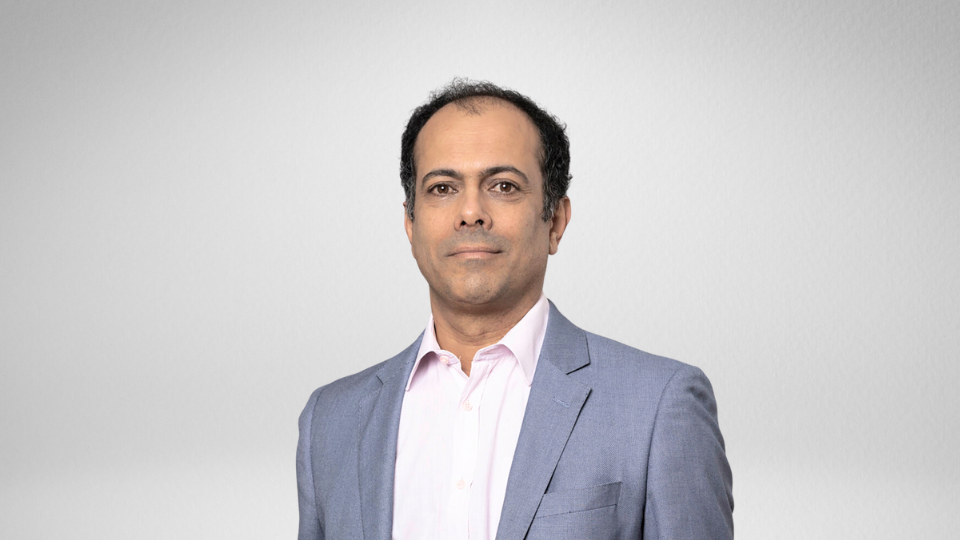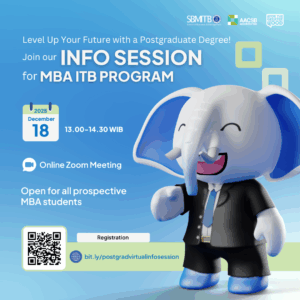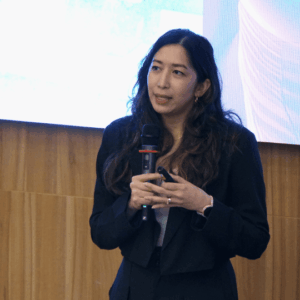Imagine a career where every six months brings a new challenge, where exploring the world and meeting people has become the norm. Of course, this dynamic lifestyle is not only for adventurers or explorers but also for academics, as exemplified by the life story of Portuguese academic Jorge F.S Gomes, a distinguished professor at the Lisbon School of Economics and Management. Gomes has been deeply engaged in academia for over a decade as a teacher and researcher in the Department of Management. Currently, Gomes is serving a temporary assignment as a visiting professor at SBM ITB from February to April 2024.
Never Dreamed of Becoming an Academic
Professor Gomes obtained a bachelor’s degree in social organization and psychology from ISPA Portugal in 1992. After graduating, he worked for several years as an HR Technician in an insurance company. During that time, he also served as a tutor, teaching at his alma mater due to their shortage of teaching staff. In the early ’90s, the academic landscape was notably different in Portugal, with a scarcity of professors. Consequently, he decided to embark on a teaching career and pursue an academic path. While teaching, he received advice from several colleagues to pursue a master’s degree in Statistics and Information Systems Management at Nova Information Management School Portugal, followed by a Ph.D. at Manchester Business School in England. Over time, he ascended to the rank of Full Professor at the Lisbon School of Economics and Management, a position he has held since October 2010.
Finding Your Way in Academia: Life Changes Every 6 Months
Professor Gomes finds that being an academic is both fascinating and enjoyable. He perceives the academic world as challenging and adventurous, where he encounters new students, courses, research projects, and even new locations every semester. “Who would have thought I would be here, in Bandung, 14,000 km away from my city a year ago?” remarked Gomes during his time in Bandung (5/3). He perceives the academic world as offering intriguing surprises, challenges, and a variety of unique experiences.
He reflects on the stark cultural differences and obstacles he faced upon arriving in Bandung. This city starkly contrasts Portugal in terms of food and daily routines. He recalls struggling with jet lag and adapting to the taste of Indonesian food, which differed significantly from the Portuguese cuisine he was accustomed to. Despite these cultural disparities, Gomes quickly adapted to exploring his new environment, appreciating the warmth of the local people and the richness of Indonesian culture. Interestingly, he also noticed linguistic similarities between Indonesian and Portuguese, attributable to historical interactions between the two cultures.
Gomes views academia as a global endeavor transcending national boundaries. He highlights how, within six months, he traversed from Portugal to Indonesia, then to Beijing, and finally to India, with plans to visit more countries as a visiting professor. He believes being an academic means being a citizen of the world, not solely a citizen of Portugal.
“In six months, I will return to Portugal to teach my former students and share the experiences I have gained and the wonders I discovered in this country,” expressed Gomes, describing his role as an academic. He aspires to impart knowledge of cultural differences and inspire his students to explore the world.
A Social Engineer Studying Organizational Behavior and Human Resource Management
Gomes boasts extensive experience in the fields of human resource management and organizations. When queried about his focus in this area, he accentuates the unique perspective psychology offers. “As a psychologist, I study the intricacies of human behavior—what drives it, what influences it, and what factors underlie it,” he elucidates. “Over the past 25 years, I’ve realized that the formula behind human behavior is remarkably complex.”
Gomes underscores the significant influence of the social dimension on individual behavior and broader societal patterns. Given his interest in this interaction, he studies the field of social engineering as a scientific discipline he currently pursues. “Social engineering entails the deliberate influence exerted by entities—whether governments, politicians, or individuals in positions of power—on societies, groups, and regions,” he elaborates.
He underscores the dual nature of social engineering, capable of yielding positive and negative impacts on society. He believes that at the core of his work lies the essential task of comprehending human thought processes and perceptions of reality. “To me, the most intriguing aspect of understanding humans boils down to one question: Why are we here?” muses Gomes. “For me, it’s about delving into the wonders of the human experience and attempting to grasp our place in the world.”
Career Advice from Prof. Gomez
Many of our career decisions are subconsciously influenced by factors we may not fully comprehend. However, he emphasizes the importance of self-awareness and alignment with one’s desired career trajectory. Particularly for young individuals, self-understanding holds significant value. He suggests contemplating career preferences with a balance of flexibility and stability. A dynamic career may be fitting if one thrives in an environment characterized by change and diverse challenges. On the other hand, if job stability and certainty are more your thing then a different path may be more suitable.
The mission at SBM ITB
Becoming a visiting professor at SBM ITB represents Gomes’s intriguing learning and cultural exchange journey. It is imperative for him to understand and appreciate Indonesian culture as part of this learning process. Gomes is dedicated to sharing knowledge with students at SBM ITB, spanning from undergraduate to postgraduate levels, on human resource management and leadership topics.
Gomes recognizes the significance of influencing and shaping the next generation’s mindset by fostering mutual understanding and respect for cultural diversity. Additionally, during his tenure, he intends to research the Portuguese expatriate community in Indonesia to deepen his comprehension of the cultural intricacies and disparities between Portugal and Indonesia.






